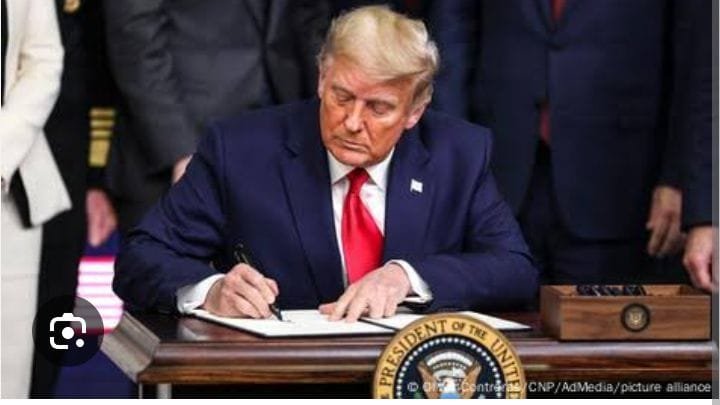“Trade Wars Heat Up: Trump Tariffs Spark Canada’s Retaliation and China’s 75% Counterpunch – Who Will Blink First?”
Canada’s swift retaliation to the new Trump tariffs, set to take effect this Tuesday, underscores the high stakes of this trade dispute. Historically, Canada has not hesitated to respond to U.S. protectionist measures with counter-tariffs of its own, as seen in 2018 when it imposed tariffs on $16.6 billion worth of U.S. goods in response to steel and aluminum tariffs. This time, Canada’s retaliatory measures are likely to target key U.S. exports, such as agricultural products, machinery, and consumer goods, which could hurt American farmers and manufacturers. The tit-for-tat nature of this trade war highlights the interconnectedness of the U.S. and Canadian economies, where punitive measures on one side inevitably lead to consequences on the other. While Canada’s retaliation may be justified from a political standpoint, it risks escalating tensions and further disrupting the North American supply chain, which has only recently begun to recover from pandemic-related challenges.
Adding another layer of complexity to this trade drama is China’s recent decision to impose a staggering 75% tariff on certain U.S. imports, a move that has been widely interpreted as a direct response to U.S. trade policies. China’s retaliation, which targets industries like agriculture and energy, is a clear attempt to hit back at the U.S. where it hurts most. However, from an economic perspective, China’s heavy-handed approach may backfire. The country is already grappling with slowing economic growth, a property market crisis, and rising unemployment. By escalating trade tensions with the U.S., China risks further alienating itself from global markets and undermining its own economic stability. Moreover, the 75% tariff is likely to disrupt China’s supply chains and increase costs for domestic industries that rely on U.S. imports, such as semiconductors and machinery. In this context, China’s retaliatory measures seem less like a strategic masterstroke and more like a desperate attempt to save face in an increasingly precarious economic environment.
The irony of this situation is that, while China and Canada are both retaliating against U.S. tariffs, their approaches and outcomes could not be more different. Canada, as a close ally and trading partner of the U.S., has the leverage of geographic proximity and deeply integrated supply chains, which make its retaliation more targeted and potentially more effective. China, on the other hand, is playing a riskier game by imposing such high tariffs, which could further isolate its economy and exacerbate its existing challenges. From an economic standpoint, China’s move is almost laughable, as it seems to prioritize political posturing over sound economic policy. The U.S., for its part, may find some short-term gains in protecting domestic industries, but the long-term costs of disrupted trade relationships and higher consumer prices could outweigh these benefits.

As this trade war unfolds, it will be fascinating to watch how the dynamics between the U.S., Canada, and China evolve. Each country is navigating a complex web of economic and political considerations, with no clear winner in sight. Interestingly, the absence of Donald Trump from the 2024 U.S. presidential race adds an extra layer of intrigue, as his protectionist policies were a driving force behind these trade tensions. Without Trump’s influence, the future of U.S. trade policy remains uncertain, leaving room for potential shifts in strategy and diplomacy. In the meantime, the global economy will continue to bear the brunt of these escalating trade disputes, making this a subject that is as consequential as it is unpredictable. It will certainly be interesting to see how it all turns out—especially with Trump not running for reelection. Hahahaha.
Dr Chukwuemeka Ifegwu Eke writes from the University of Abuja Nigeria







